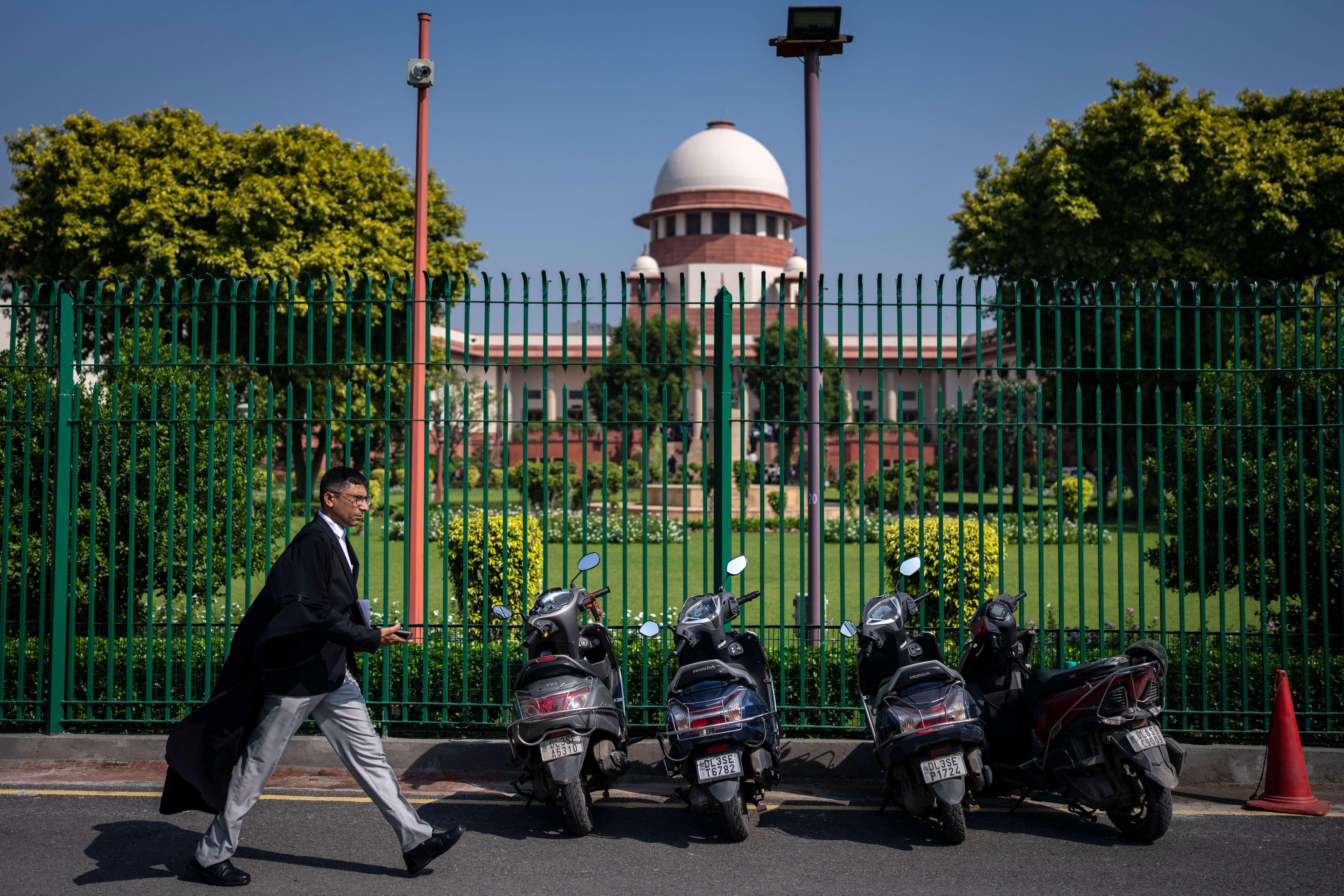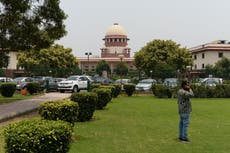India’s top court backs Modi government move to expand affirmative action
Controversial law dilutes affirmative action based on caste, allowing poorest from any background to claim various benefits instead

In a major victory for the Narendra Modi government, India’s supreme court has upheld a controversial law extending affirmative action to poorer members of the country’s so-called upper castes.
Passed by parliament in January 2019, the law reserves 10 per cent of all government jobs and higher education places for the “poorest of the poor” coming from groups not otherwise protected under affirmative action by India’s constitution.
Such reservations have been used to ensure jobs and education go to members of historically oppressed groups within the rigid system of the Hindu hierarchy of caste.
Independent India’s constitution had banned caste-based discrimination in 1950, and successive governments implemented policies like quotas in government institutions to encourage greater social mobility for lower castes who were otherwise considered less desirable for top administrative roles and occupations.
These laws recognised some of the most historically oppressed groups – which became known as scheduled castes (SCs), scheduled tribes (STs) and other backward classes (OBCs) – and set aside 49.5 per cent of government jobs and higher education places for them.
The idea of opening up affirmative action to include economic status alongside caste background has been fiercely debated, with petitioners challenging the law arguing it is “an affront to the constitutional goal of an egalitarian and casteless society”.
The law was challenged on the grounds that it was discriminatory as it did not include caste groups covered by existing reservation under the ambit of the “economically weaker section” (EWS), and went against the 1992 ruling of the Supreme Court that capped all reservation quotas to 50 per cent of any given vacancy.
The petitioners argued that the exclusion of the most historically disadvantaged groups means the EWS quota is a policy only designed to benefit the middle class – one of the most important vote banks for the ruling BJP.
A five-judge constitutional bench comprising of chief justice UU Lalit and justices Dinesh Maheshwari, S Ravindra Bhat, Bela M Trivedi and JB Pardiwala passed the judgement, upholding the law in a 3-2 verdict.
Passing the majority order, Justices Maheshwari, Trivedi and Pardiwala held that the 2019 law did not breach the 50 per cent ceiling limit as the government can make “special provisions” to move towards an “all-inclusive egalitarian society”.
The quota amounted to an “affirmative action” on the part of the state, said the ruling.
“It is an instrument not only for inclusion of socially and educationally backward classes to the mainstream of society, but also for the inclusion of any class or section so disadvantaged as to be answering the definition of a weaker section,” said Justice Maheshwari.
“In this background, reservation singularly on economic background does not violate any essential feature of the constitution and does not cause any damage to the basic structure of the constitution.”
Upholding the law, Justice Trivedi said there is a need to revisit the reservation policy, suggesting it should have a time span.
She said “the impugned amendment creates a separate class of EWS from the general or unreserved category without affecting the special rights of reservations provided” to SCs, STs and OBCs and therefore, their “exclusion” from such a reservation “is not unreasonable”.
Agreeing with Justices Maheshwari and Trivedi, Justice Pardiwala in a separate judgment held that reservation was not an end but a means to secure social and economic justice.
“[The] real solution, however, lies in eliminating the causes that have led to the social, educational, and economic backwardness of the weaker sections of the community,” he said. “As larger class of backward class members attain acceptable standards of education and employment, they should be removed from the backward categories so that the attention can be paid towards those classes which genuinely need help.”
Chief justice Lalit and Justice Bhat wrote a dissenting view and said excluding historically underprivileged groups from applying for reservation benefits under the new EWS category was discriminatory.
Justice Bhat, who authored the minority view for himself and the chief justice, said that though reservation based on economic criteria was “per se permissible”, it should be struck down for excluding SCs, STs and OBCs.
The justices held that it was not correct on the government’s part to say that opening the EWS quota for the oppressed groups would give them a “double benefit” as reservation was devised as a reparative mechanism to bring the historically deprived to the mainstream and not a “free pass”.
Categorising the poorest of the poor on the basis of caste and class amounts to “constitutionally prohibited discrimination”, held the two judges, adding that reservation was introduced to undo social stigmatisation caused by unequal access to education and jobs.
Join our commenting forum
Join thought-provoking conversations, follow other Independent readers and see their replies
Comments



Bookmark popover
Removed from bookmarks